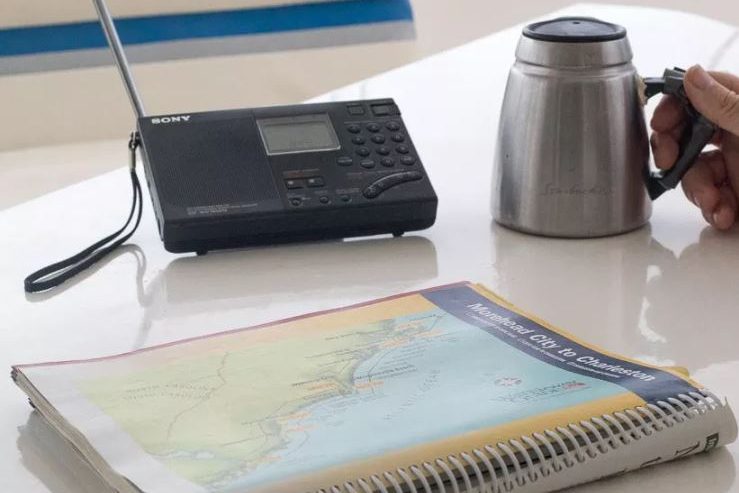Story by TMC Editor / September 13, 2018

By: Karen Massey
This article was published with permissions by Dean and Karen. Their original blog post can be found here.

As sailors, we have learned to adjust our schedule according to hurricane season. The season officially runs from June 1 through November 30 with the highest probability of tropical storms in the Atlantic basin generally found between August and October. It’s a fact of life for blue water sailors and we’ve learned that surviving the season, wherever you are, is a matter of planning, preparation and a bit of luck.
Our boat insurance sets the parameters of where we keep the boat during hurricane season. For a price, you can find someone to insure your boat wherever you are. But for the best rates, most insurance companies require that you have a hurricane preparation plan and that your boat be above 30° N latitude (about the Georgia/Florida border) during the official hurricane season.

Here are the steps that we follow to prepare our boat (and ourselves) for a potential hurricane:


Currently Snowcat is “on the hard” (out of the water on blocks) in a shipyard located in the far northeast corner of Chesapeake Bay, a reasonably safe location. Our plan is to get her launched in late September and cruise the northern Chesapeake Bay through most of October before starting a slow “follow the changing colors” trip south down the coast.
This article was published with permissions by Dean and Karen. Their original blog post can be found here.
Was a pleasure working with Andrew Hodgdon as buyers agent for our recent multihull purchase. Very knowledgeable of this space and for sure my first call buying or selling a yacht.
The multihull company has been great to work with. They were very helpful in every stage of our purchase from instill showings to purchase. Karl Reed, Andrew Hodgon and Andrew Holland were great sources of information and helped us find our dream Catamaran. Thank you Multihull!
Sold my L42 here with the excellent help and support of TMCs Croatia sales manager “Zee”. Despite my boat docked on the dry in Montenegro, in winter and in a challenging market, TMC and Zee managed to get her sold, managing the entire process from taking pictures and video’s, putting her out there on the web, prepping her and managing all for inspections….down to the final hand-over documents and managing the escrow payments when all boxes were ticked! Very professional, very helpful (Zee went above and beyond to make sure he delivers excellent service), responsive and successful. Thanks TMC!
We purchased our lagoon 410 through the multihull company, Andrew Hodgdon was the listing’s broker. From the start till the end of the process he was upfront honest and accommodating. Our situation was unique and required a bit more leg work. Andrew was always easy to get a hold of and willing to help. It was a pleasure working with a highly knowledgeable broker that values integrity. I highly recommend him.
Successful relationships cannot exist without it. At The Multihull Company we base every relationship on a firm commitment to earning and retaining our client’s trust.
Advice of any kind is valuable only when grounded in hard-won expertise. It too, must be trustworthy. Trust and expertise define the heart and soul of The Multihull Company. We are a team of skilled professionals who thrive on providing expert, trustworthy advice and service to catamaran and trimaran sailors around the globe.
Read More